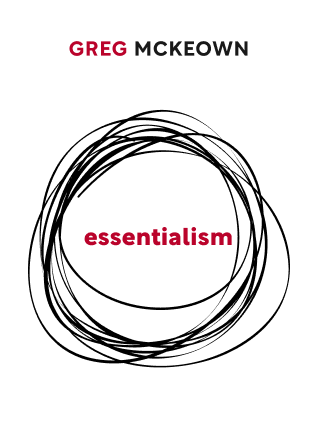

This article is an excerpt from the Shortform book guide to "Essentialism" by Greg McKeown. Shortform has the world's best summaries and analyses of books you should be reading.
Like this article? Sign up for a free trial here .
Looking for Essentialism quotes by Greg McKeown? What do they teach about prioritizing and time management?
Essentialism is a 2014 book by leadership and business strategist Greg McKeown, in which he walks you through his principles of essential living. The following Essentialism quotes capture some of his key ideas about essential living, prioritizing, and time management.
Keep reading for Essentialism quotes by Greg McKeown.
Essentialism Quotes by Greg McKeown
“Essentialism is not about how to get more things done; it’s about how to get the right things done. It doesn’t mean just doing less for the sake of less either. It is about making the wisest possible investment of your time and energy in order to operate at our highest point of contribution by doing only what is essential.”
According to McKeown, essentialism is not about being more efficient or doing more with less (or less with less), as many companies demand of employees. It requires stopping regularly to ask yourself whether you’re spending your time and resources on the right things.
We have numerous activities and opportunities to choose from, and obviously we can’t invest our time and energy in all of them. Some may be good or excellent opportunities, but most are inconsequential; few are crucial or essential. Essentialism is differentiating among the options and selecting and acting on just a few essential ones while eliminating the rest. It’s doing the right things as opposed to doing more things.
Essentialism is investing your time and energy only in what’s essential in order to make your optimum contribution to activities and projects that really matter.
“If it isn’t a clear yes, then it’s a clear no.”
One of the most crucial skills for practicing essentialism is saying no. If you can’t say no to the nonessential, you won’t have the time and energy to pursue the truly important things.
Saying no makes us uncomfortable because it’s socially awkward. There seem to be only two options: say no and endure the immediate awkwardness, or say yes and regret it much longer. However, you can learn to say no gracefully and even get people to respect you for it in the process.
“The killer question: “If I didn’t already own this, how much would I spend to buy it?”
McKeown is a firm believer in using the extreme criteria for deciding on how to spend your time. The closet-organizing example shows how extreme criteria work. While sorting your clothing, if you base your decisions on a broad standard of whether there’s a chance you’ll wear something at some point in the future, you won’t get rid of much. However, if you ask yourself “If I didn’t already own this, how much would I spend to buy it?”, you can more easily eliminate the nonessential.

———End of Preview———
Like what you just read? Read the rest of the world's best book summary and analysis of Greg McKeown's "Essentialism" at Shortform .
Here's what you'll find in our full Essentialism summary :
- How to do less but to do it better
- Why you need to be disciplined in your pursuit of less
- How you can learn to say no






